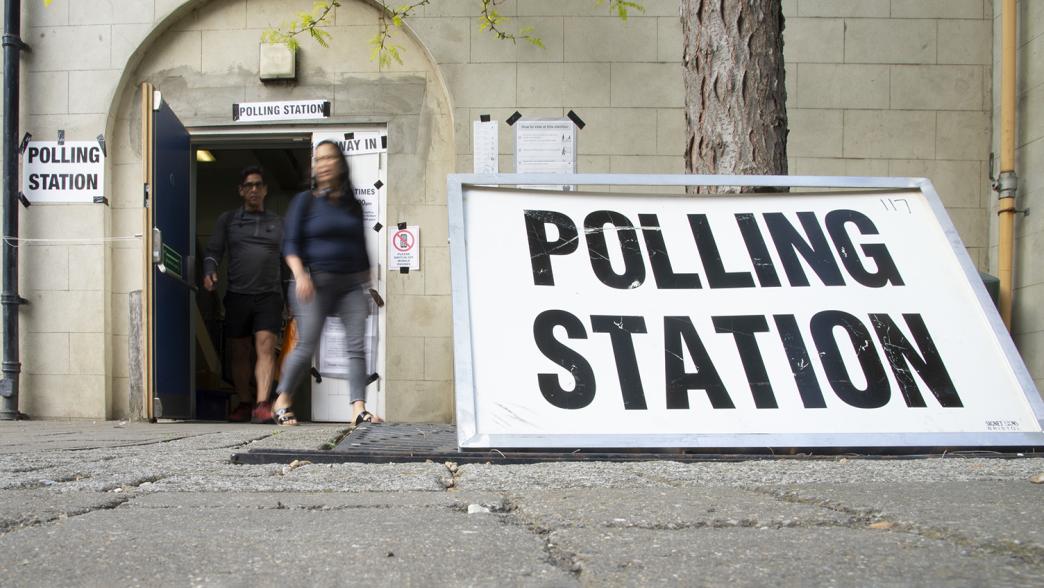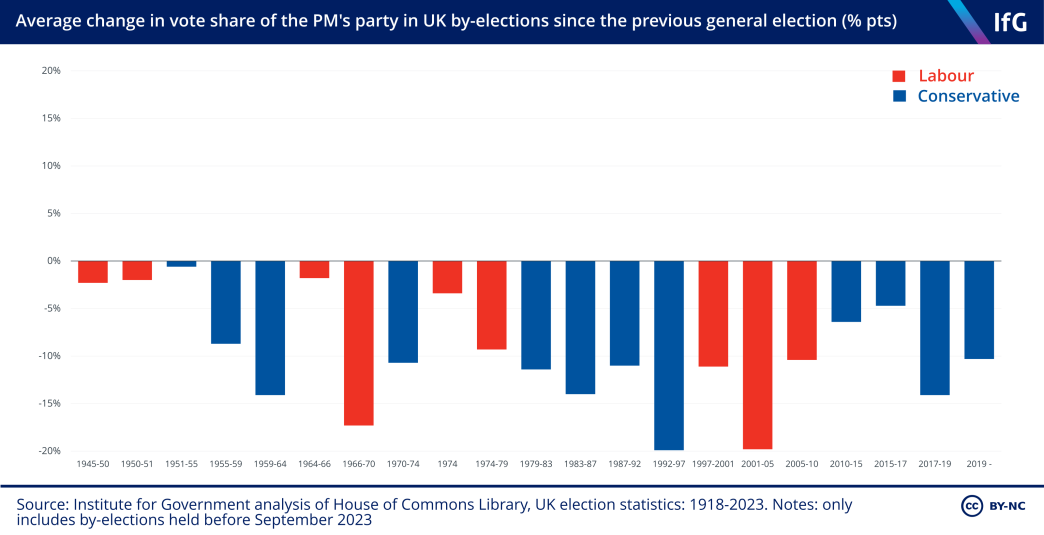
What is a by-election?
A parliamentary by-election in the UK takes place when a seat in the House of Commons becomes vacant between general elections. Voters in the relevant constituency elect a new MP.
What triggers a by-election?
A seat in the Commons automatically becomes vacant if its MP resigns, dies, is declared bankrupt, takes a seat in the House of Lords, receives a prison sentence of 12 months or more, or is ‘recalled’ by their constituents.
Technically, an MP cannot resign. Instead, they must apply for an ‘office of the crown,’ which automatically disqualifies them from holding a seat in the Commons under the provisions of the House of Commons Disqualification Act 1975. Two offices are typically used for this purpose: the offices of crown steward and bailiff of the Chiltern Hundreds, and of the Manor of Northstead.
Following a declaration of bankruptcy, an MP has a period of six months in which to discharge themselves. If they fail to do so by the end of that period, the court that ordered the bankruptcy is required to notify the Commons Speaker.
A by-election is not automatically triggered if an MP changes political party. For example, a by-election did not occur when Christian Wakeford, MP for Bury South, defected from the Conservatives to Labour in January 2022.
Can constituents trigger a by-election?
Constituents can trigger a by-election in certain circumstances through a process known as ‘recall’. This procedure was introduced in 2015.
MPs can only be recalled in three circumstances: if they receive a prison sentence of less than 12 months (longer sentences result in automatic disqualification), if they are suspended from the House by the Committee on Standards for 10 sitting days or more, or if they are convicted of making false or misleading parliamentary expenses claims. undefined House of Commons Library, Recall elections, retrieved 21 September 2023, www.commonslibrary.parliament.uk/research-briefings/sn05089
If the Speaker is satisfied at least one of these conditions has been met, they must notify the local returning officer. A recall petition is opened for a period of six weeks. If the petition is signed by at least 10% of eligible voters in the constituency, the member is recalled and the seat is declared vacant. The recalled MP is permitted to stand as a candidate in the following by-election.
Since the introduction of the process, only three MPs have been successfully recalled. Two were recalled in 2019: Chris Davies in Brecon and Radnorshire, following a conviction for fraudulent expenses claims, and Fiona Onasanya in Peterborough, following a criminal conviction for perverting the course of justice in relation to two speeding incidents. Margaret Ferrier was recalled by voters in Rutherglen and Hamilton West in 2023, having been convicted of breaching Covid restrictions.
Who decides how quickly a by-election occurs?
Political parties have some leeway in deciding the date of a by-election. By convention, it is the chief whip of the former MP’s party who asks MPs to agree to hold a by-election for the vacant seat. This process is called ‘moving the writ’ and takes place in the Commons chamber. With the agreement of the House, the Speaker issues a warrant to the clerk of the crown (a senior civil servant), who sends the writ – an order for the election – to the constituency returning officer, who is then responsible for overseeing the election. Polling day must fall between 21 and 27 working days after the writ is issued.
Until the by-election takes place an MP of the same party, and of a nearby constituency, will generally manage constituency matters in the vacant seat.
By convention, a new writ is normally issued within three months of the seat becoming vacant. The timing of a by-election remains a decision for the House of Commons. In particular, if a seat becomes vacant towards the end of a parliament, the Commons may choose to leave the seat unfilled until the general election.
Is it normal to have by-elections on the same day?
Yes. If multiple by-elections are triggered in quick succession, then it is not uncommon for the elections to be held on the same day. This may be done for practical or political reasons, such as to facilitate campaigning, or to maximise or minimise the political fallout of the results.
Until the early 20th century MPs would automatically vacate their seat upon entering ministerial office. They would subsequently need to be re-elected at a by-election, meaning it was relatively common for votes to be held on the same day. Since 1945, this has happened on several occasions – and in 1986, some 15 by-elections took place together after Northern Irish unionist MPs sought re-election in protest of the Anglo-Irish Agreement.
How do constituents tend to vote in by-elections?
Turnout is typically lower in by-elections and voting patterns may differ significantly from those in general elections. Voters may believe the stakes to be lower at by-elections, as they do not usually affect which party forms the government of the day. Local issues specific to the constituency may also be more prominent. Opposition parties are more likely to make gains at by-elections, although this is not always the case: the Conservative Party won Hartlepool from Labour in a 2021 by-election.

What are the campaign rules for by-elections?
The spending limit for candidates in a by-election is £180,050 each.
4
Representation of the People Act 1983, s 76 (aa)
This figure was increased in November 2023 – the first increase since the limit was instituted. The regulated period for spending begins on the day after the candidate is officially selected and ends on polling day. This differs from general elections, for which there are normally two regulated periods for spending purposes, known as the ‘long campaign’ (which begins once a parliamentary session has lasted for 55 months) and the ‘short campaign’ (which begins when parliament is dissolved ahead of polling day).
Under electoral law, pacts between political parties are allowed but would affect the ‘complex’ rules of campaign finance overseen by the Electoral Commission.
Are by-elections always contested by other parties?
By-elections are not always contested by other parties. There have been two by-elections in recent years following the murder of an MP: in 2016 in Batley and Spen, following the murder of Labour MP Jo Cox, and in 2022 in Southend West, following the murder of Conservative MP David Amess. In both of these by-elections, the other main political parties did not field candidates as a mark of respect. Labour and the Conservatives respectively held their seats.
- Political party
- Conservative Labour Liberal Democrat
- Legislature
- House of Commons
- Publisher
- Institute for Government